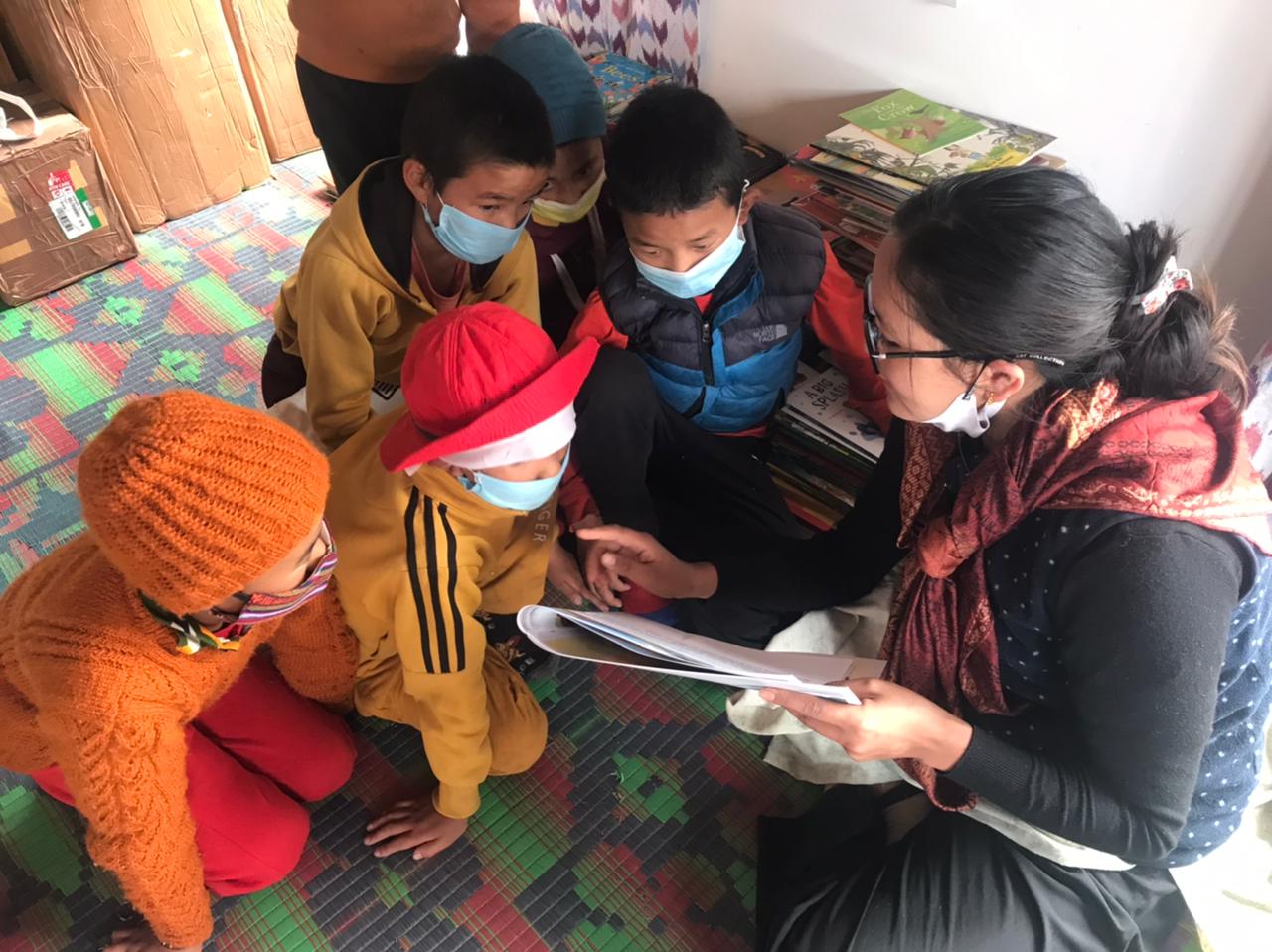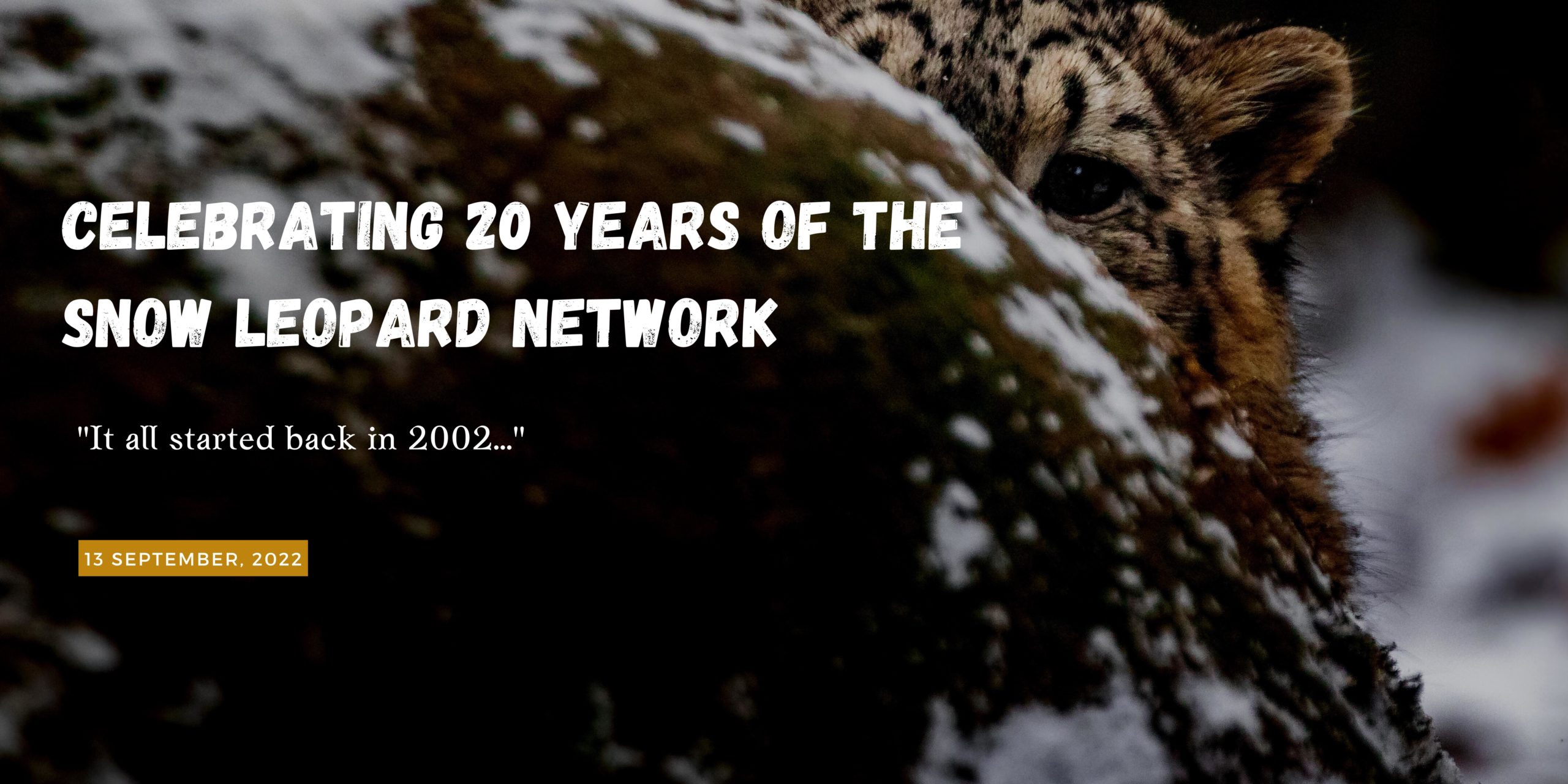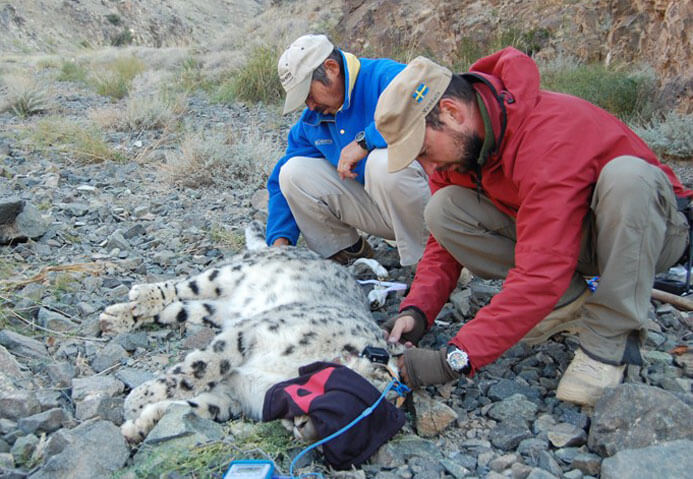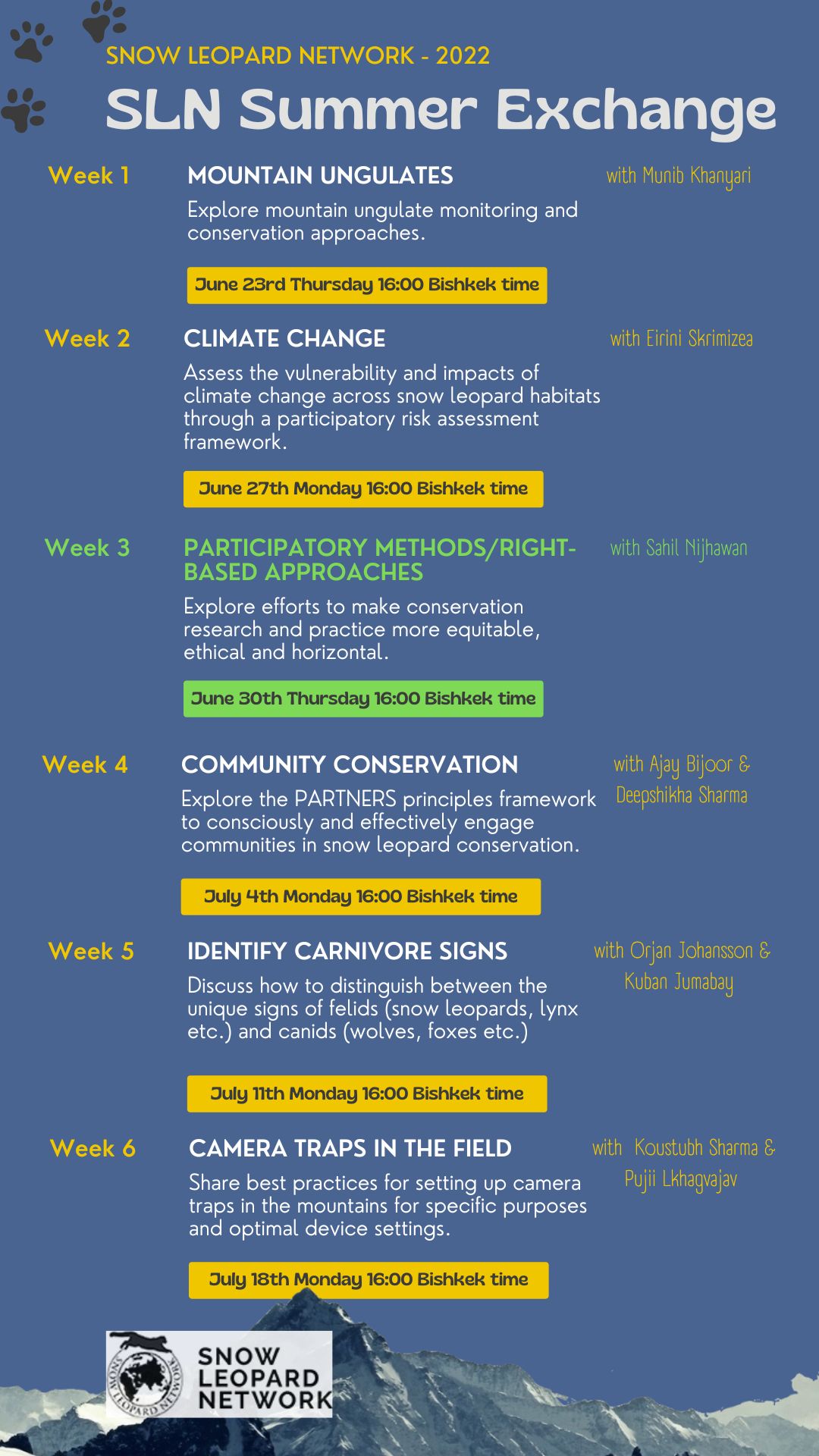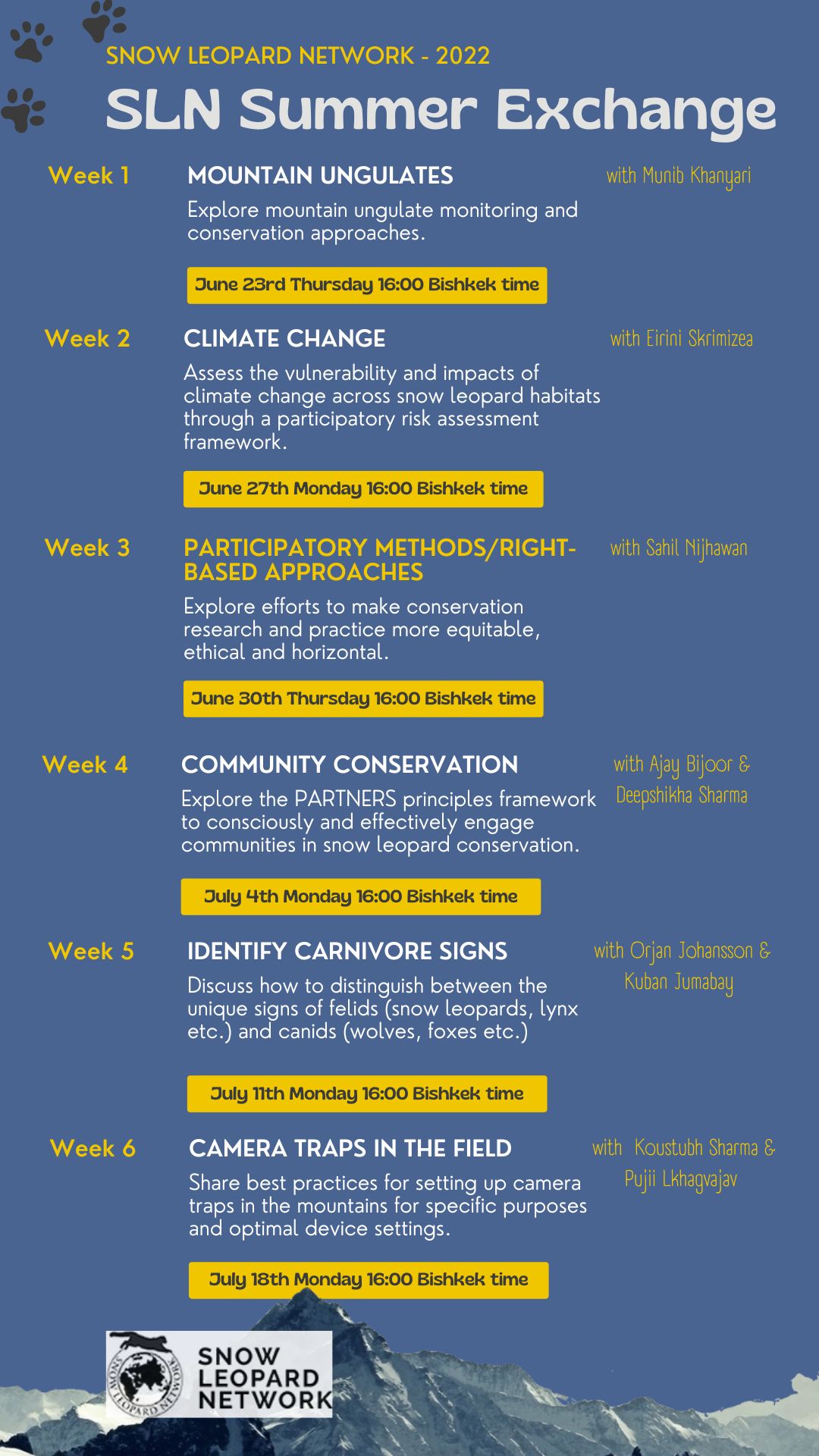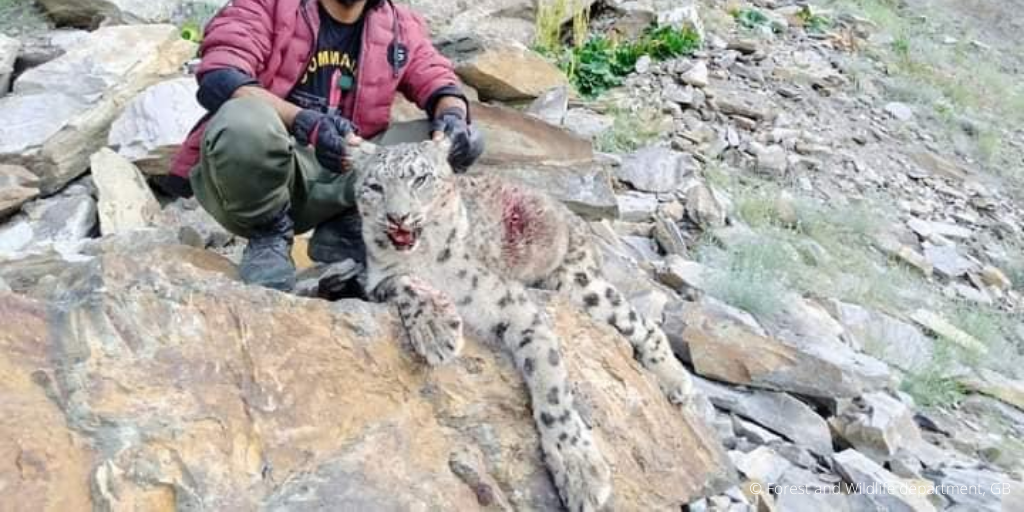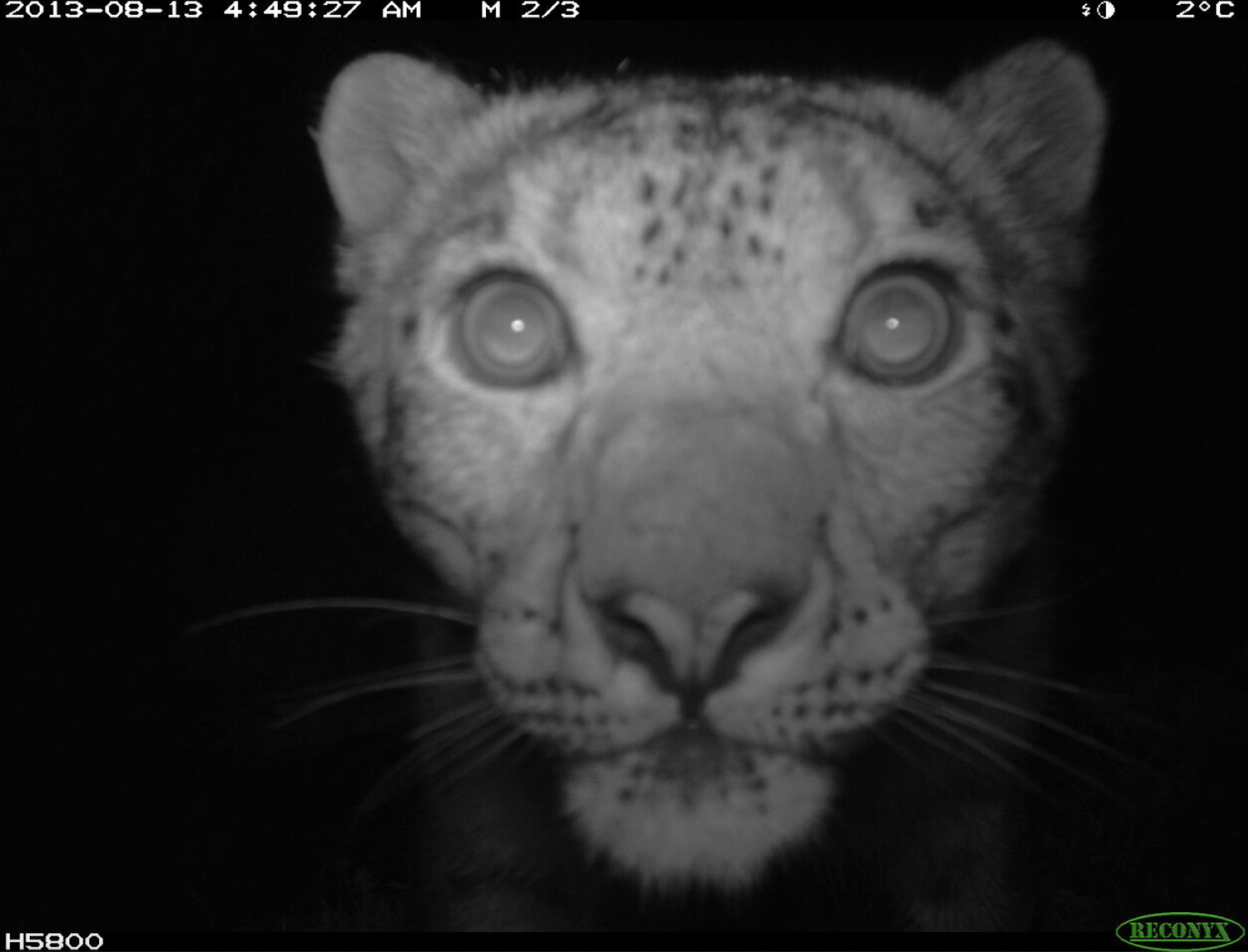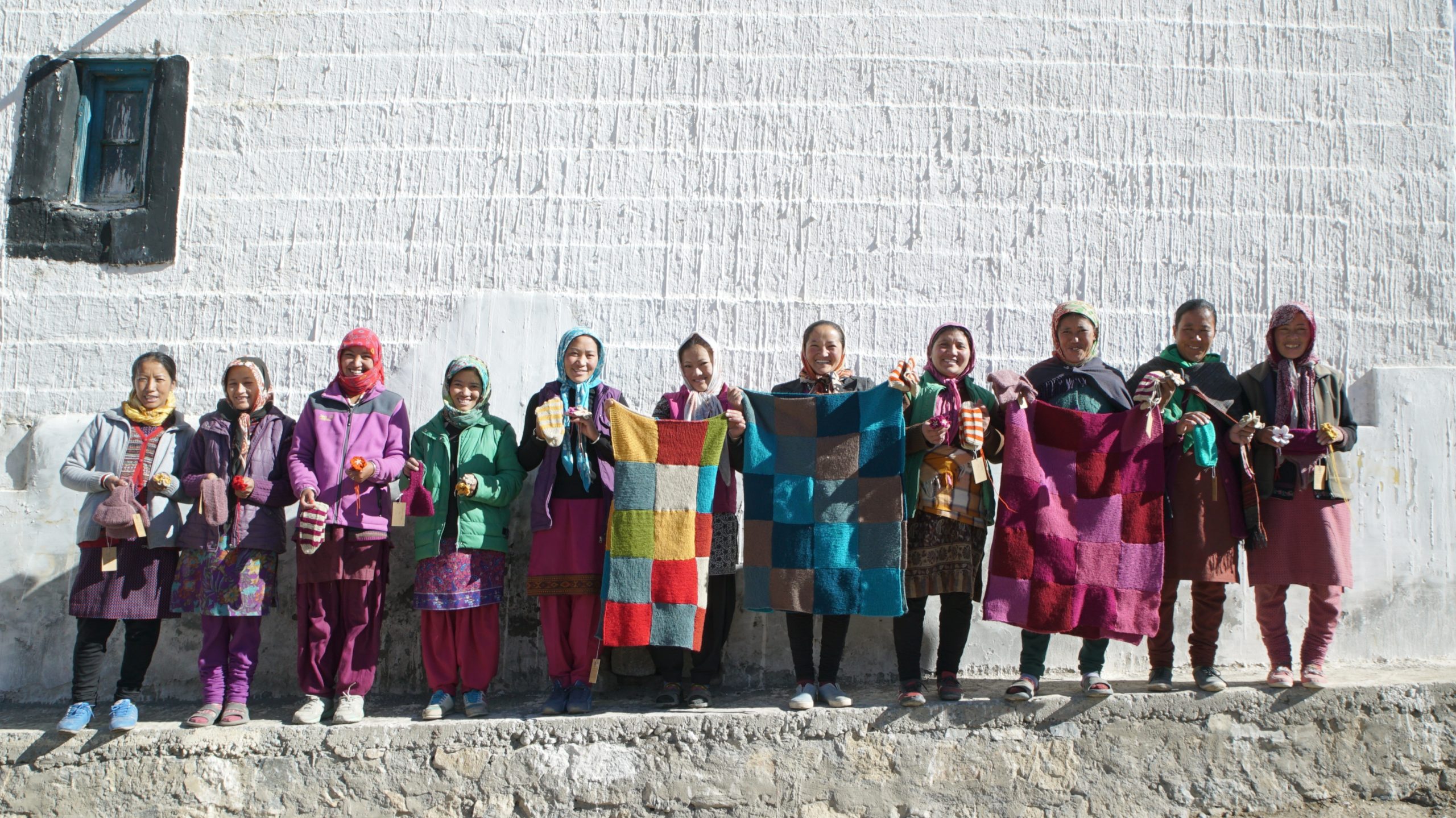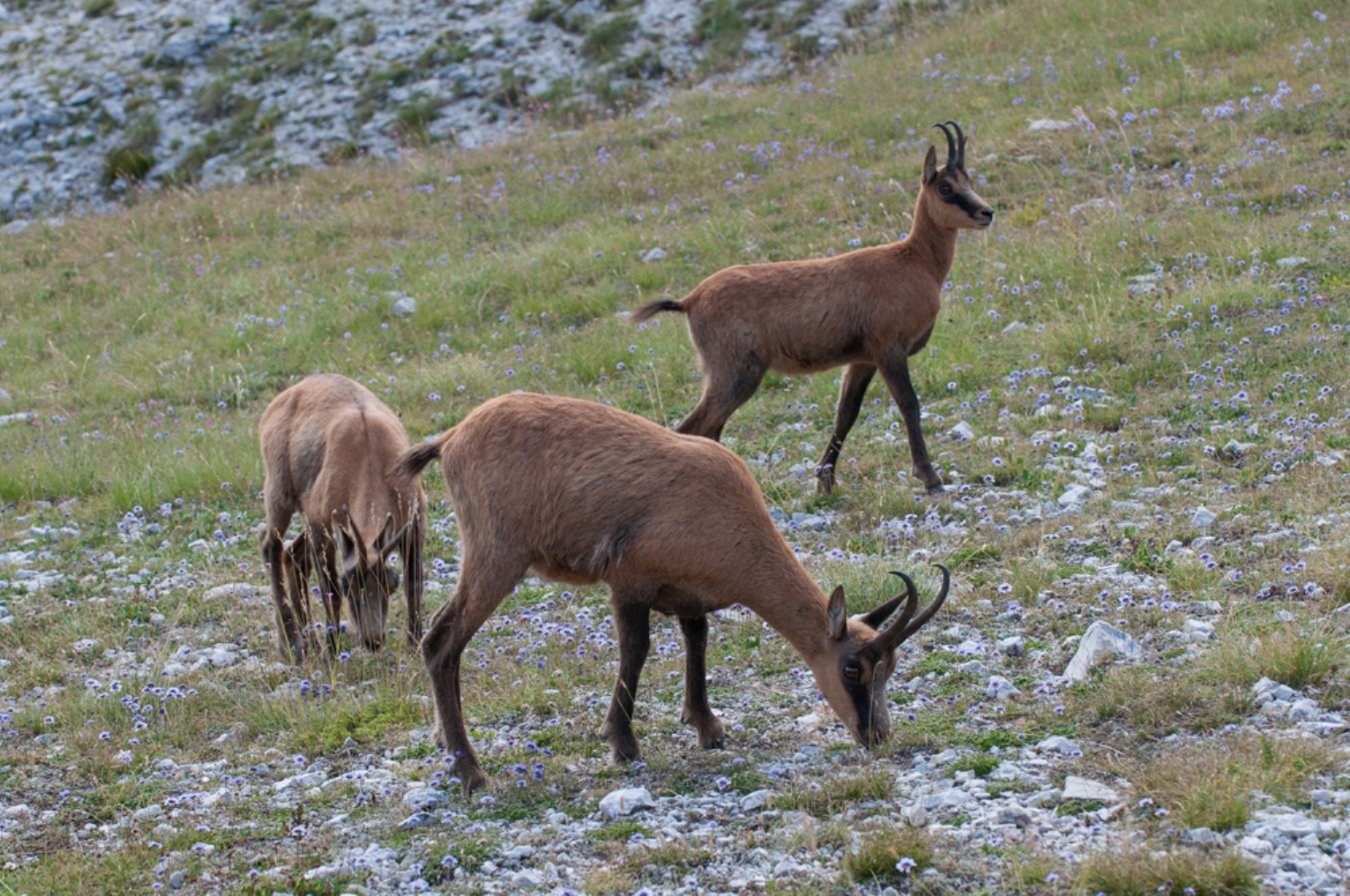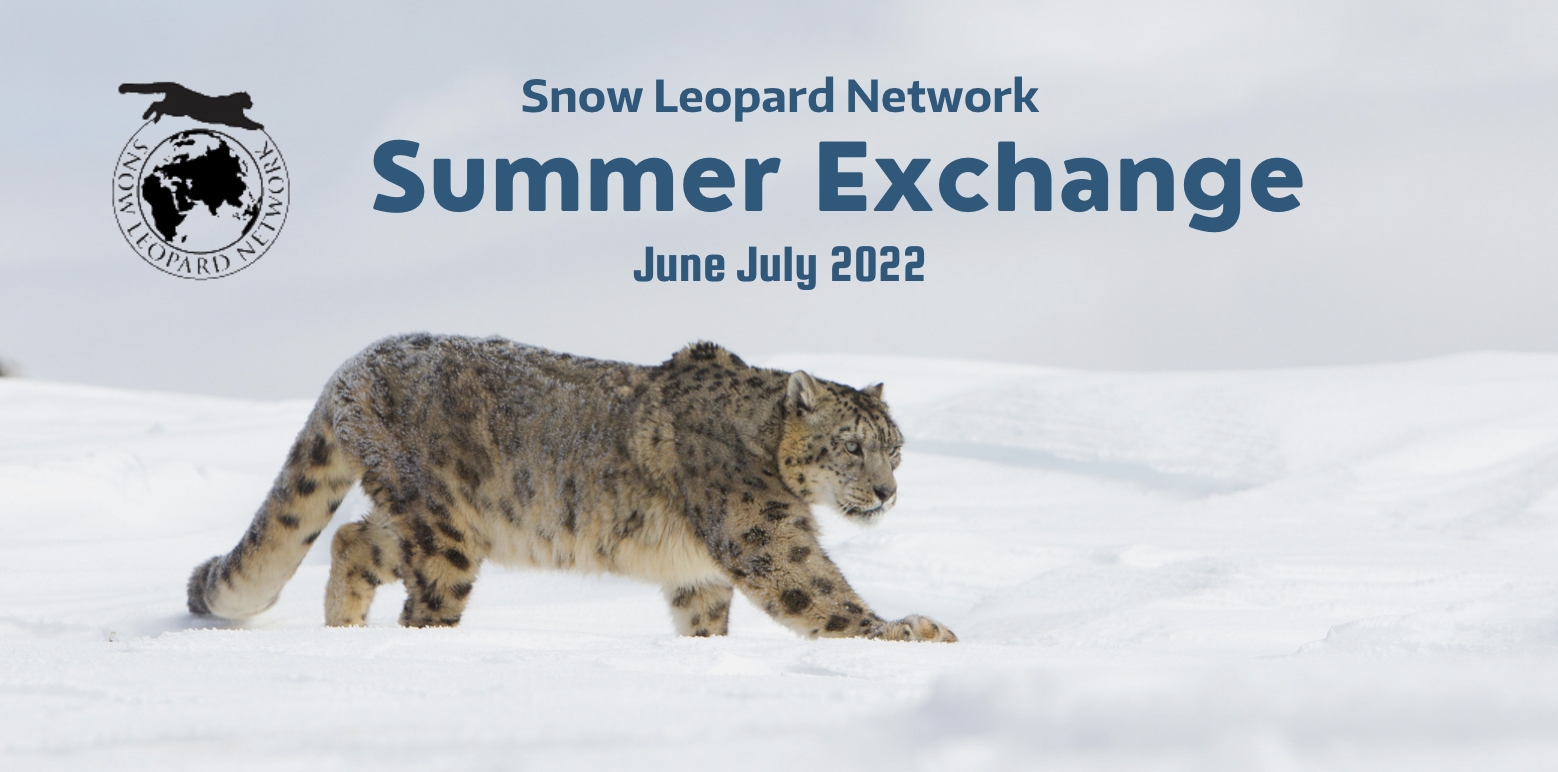
The Snow Leopard Network (SLN) is launching its first mini Summer online research and conservation training course. It will consist of a series of mini-modules, each for 2 hours, in which participants can build their skills and knowledge on a range of critical snow leopard related conservation tools.
SLN is delighted to announce the line-up for the 2022 SLN Summer Exchange! This year’s mini-module themes were chosen based on feedback from SLN members. Our Resource Team are individual and organizational members from the Snow Leopard Network, drawing on their extensive knowledge and experience. We are very appreciative of our Resource Team finding time to join us in this effort and we look forward to members taking advantage of this exceptional opportunity.
Please do share the information with anyone interested as these sessions are open to ALL, new or current SLN members and free.
Week 1: Mountain Ungulates
June 23rd Thursday 16:00 Bishkek time
Asia’s mountain ungulates play an important role in maintaining ecosystems by influencing vegetation structure and nutrient cycling. There is a need for more information about the population status of these ungulates, which carries special significance in the protection of the snow leopard across its range. This session will explore a range of mountain ungulate monitoring and conservation approaches. Dr. Munib Khanyari will facilitate the session. He works with the Nature Conservation Foundation as a Program Manager. He works primarily across the Trans-Himalayan region of India, aiming to build positive human-nature relationships.
Week 2: Climate Change
June 27th Monday 16:00 Bishkek time
Participatory climate risk assessment for integrating climate change considerations into development and conservation efforts. Climate risk assessments allow to understand climate risk and vulnerabilities, and can support in identifying and selecting adaptation strategies aligned with development goals and conservation efforts. The meaningful inclusion of the communities in the process is necessary in order to obtain valuable information, raise awareness and ensure adaptation actions that are relevant to the local contexts. In this module these issues and more will be discussed. Participants will be introduced to basic climate change related concepts, and exposed – through an interactive exercise – to a method for participatory climate risk assessment based on the ‘Climate impact Chains’ analytical approach. The module will draw on the example of participatory climate risk assessments in Kyrgyzstan showing how these integrated considerations on human-wildlife conflict with focus on snow leopards. Dr. Eirini Skrimizea, KU Leuven and Eurac Research will facilitate the session. Eirini Skrimizea is a postdoctoral researcher with a background in planning and sustainability research. She has expertise on governance of socio-ecological development and the social aspects of climate change in the Global North and South.
Week 3: Participatory methods/right-based approaches to research and conservation
June 30th Thursday 16:00 Bishkek time
Significant focus has been placed on community-based conservation in recent decades. However, much purported community-based conservation research and practice continues to be top-down, where local people are seen as beneficiaries and stakeholders, but not right-holders. In this workshop, using case studies, we will explore efforts to make conservation research and practice more equitable, ethical and horizontal. We will discuss the philosophy, practice and challenges of conducting rights-based and truly collaborative conservation. Dr. Sahil Nijhawan is an interdisciplinary conservation anthropologist who has worked on human-wildlife relations across Latin America, Southern Africa and India. For the past decade, he has worked alongside the indigenous Idu Mishmi people of Arunachal Pradesh (India) – a journey that began with his doctoral research on socio-cultural, ecological and political relations between the Idu Mishmi and tigers. He is now part of local teams in Arunachal Pradesh and Nagaland working on a range of locally-led initiatives towards rights-based bio-cultural conservation and research.
Week 4: Community Conservation
July 4th Monday 16:00 Bishkek time
Engaging and partnering with such local communities is critical to the success of conservation efforts. The PARTNERS principles offer a framework to consciously and effectively engage communities. This approach of eight broad principles can offer support to not only conservationists but anyone who is engaging with communities. In this session, we will explore these principles briefly and understand their working through case-studies. Ajay Bijoor and Deepshikha Sharma will facilitate the Session. Ajay has been working with local communities and government agencies to plan and implement conservation action in the high-elevation landscapes of India for the past 7 years. He has also been exploring the intersection of conservation with local knowledge systems, resource management, and local and global economy. Deepshikha has been facilitating community led conservation in snow leopard habitat in Himachal Pradesh & Ladakh. She is working towards raising awareness and reducing losses faced by local communities due to wildlife. She is also working towards bringing local women to the forefront of conservation in the landscape.
Week 5: Identify Carnivore Signs
July 11th Monday 16:00 Bishkek time
Carnivores leave behind signs- such as tracks, droppings, sprays and carcasses. They also can be heard- making unique sounds. The team will discuss how researchers can distinguish between the unique signs of felids (snow leopards, lynx etc.) and canids (wolves, feral dogs, red foxes). They will share strategies and potential pitfalls to look out for. Dr. Orjan Johansson & Kubanych Jumabay (Kuban) will lead the session. Orjan is a Senior Scientist for the Snow Leopard Trust and has supported the Long Term Ecological Program in Mongolia for over a decade. Kuban is the Director of the Snow Leopard Foundation Kyrgyzstan.
Week 6: Camera traps in the field
July 18th Monday 16:00 Bishkek time
Camera traps are an important tool for snow leopard research and conservation. In this session we will share tips on best practices for setting up camera traps in the mountains for specific purposes and optimal device settings. The team will discuss camera trap types, how to effectively choose locations, strategies to improve battery life, lighting and safety of the equipment. The team will also discuss how one can improve the quality of captures for the identification of snow leopard individuals. In this interactive workshop, participants will be welcome to share their ideas, experiences and ask specific questions. Dr. Koustubh Sharma & Purevjav Lkhagvajav (Pujii) will lead this session. Koustubh is the Assistant Director of Conservation Policy and Partnerships with the Snow Leopard Trust and the International Coordinator with the GSLEP Program. He is closely involved with the implementation of the Population Assessment of the World’s Snow Leopard (PAWS). Pujii is the Snow Leopard Conservation Foundation Mongolia’s Research and Monitoring Manager. She works closely with rangers across Mongolia, and has been supporting systematic camera trapping across thousands of square kilometers for more than a decade.

